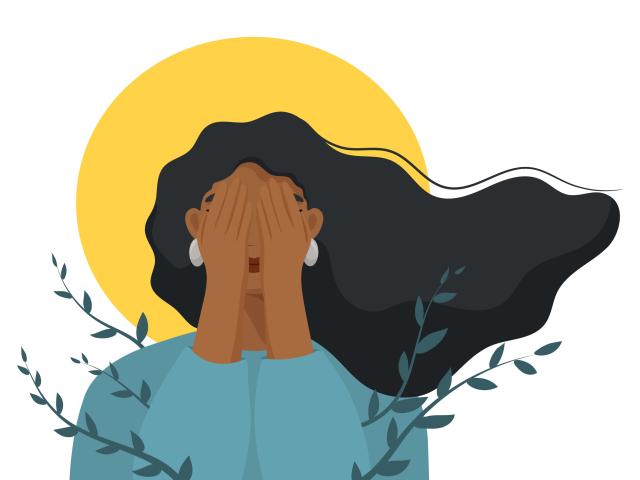The Benefits of Taping Your Mouth Closed During Sleep

I’m a sleep geek. Like many who are caught up in the personal development and biohacking craze, I have read, listened to, and I tried nearly every trick in the book — a dark room, eight-plus hours of sleep, exercise, decreased caffeine, a better bed, specialized sleep music, meditation, no alarm. Yawn!
Even though getting to sleep was never a problem for me, no matter what I did, I’d often wake up feeling tired, anxious, and riddled with aches and pains. Sadly, I even started to think these issues were normal.
Then, a little over a year ago, I listened to an episode of the Broken Brain podcast with Mark Burhenne, DDS, bestselling author of The 8-Hour Sleep Paradox. He was on the show to talk about sleep and, more importantly, the dangers of mouth breathing while sleeping.
While many of us use our mouth to breathe, this is actually the primary role of the nose. Breathing through the mouth is designed primarily for emergencies, such as when we have nasal congestion or during exercise.
While mouth breathing during sleep may seem innocent, Burhenne explained that it can lead to health issues — including an increased risk of cavities, elevated blood pressure (connected to anxiety), grinding of the teeth, dry mouth and various other concerns. Mouth breathing has even been linked to behavior issues in children and infants.
Fortunately, there is a solution that doesn’t require any complicated procedures or expensive purchases and is easy for anyone to try at home: mouth tape!
Why mouth tape?
While mouth tape may sound like a joke or some new weird health hack, it’s actually been around as a suggested measure for years. Burhenne explained its value by detailing how humans evolved from nasal breathers to mouth breathers. He explained that mouth breathing is a relatively recent phenomenon for humans. When comparing our ancestors’ archaeological records, there appears to be a clear difference in our facial structure and airways.
Photo: v2osk/Unsplash
These changes may be due to factors ranging from a diet consisting of more processed food, decreased breastfeeding, air pollution, and other causes. These things, combined with sleeping with our mouth open, have caused significant changes in how we generally breathe.
Charles Darwin noticed similar changes to the human skull in his research. Katherine Reynolds Lewis details this in her article “Our Skulls Are Out-Evolving Us”:
One of the first to recognize the shrinking skull was Charles Darwin, who described “civilised” humans as having shorter jaws than the “savages” who lived in non-industrialized societies, in The Descent of Man. “This shortening may, I presume, be attributed to civilised men habitually feeding on soft, cooked food, and thus using their jaws less,” he wrote.
Thankfully, as Burhenne explained, we can counter these changes, at least somewhat, by using mouth tape when we sleep.
By placing a piece of tape over your lips before going to bed, your mouth will remain closed while you sleep, prompting you to naturally breathe through the nose. Nose breathing ensures that you get more oxygen to your body, properly filtered air to your lungs, improved blood pressure, a healthier oral microbiome, and various other benefits.
The results
I was slightly nervous about the idea of having my mouth taped while sleeping. I wasn’t sure if I could adequately breathe through my nose when I was asleep, but I quickly realized that breathing through my nose felt natural and would unlikely be an issue.
So I taped my mouth closed and went to bed. The next day, I woke up and was alive. To be honest, I didn’t feel a world of difference but decided to stick with it; within a few days, I could sense improvement. I was waking up feeling rested, like I had slept, and without any aches and pains. I also stopped snoring. My girlfriend was super-appreciative of this change.
It doesn’t take a lot of tape to keep your mouth closed.
I also noticed various other benefits, including decreased bad breath and no dry mouth. Burhenne and other leading breath experts have seen similar results via their practice and research. James Nestor, author of the bestselling book Breath, and Patrick McKeown, author of The Oxygen Advantage, are also advocates of mouth taping.
There is no single behavior that we spend more time doing than sleep. We each spend approximately one third of our life asleep. Sleep is the primary tool for brain and body health. If we’re spending a massive amount of time sleeping incorrectly, this is something to be taken seriously.
Mouth taping provides an affordable and accessible solution for improved sleep that anyone can try. If you opt to experiment, be sure to use a small piece of surgical tape or a specialized mouth tape and make sure you feel comfortable removing it with your hand or lips. I have been using mouth tape for more than a year now. While clinical trials are still underway—Stanford University is doing a significant mouth tape study—many leading experts have become proponents. There isn’t much to lose — and potentially great sleep to gain.

Top Notch And Most Amazing Hair Oil in Pakistan
- Castor oil has many benefits, especially if you want to use castor oil to control hair fall. It prevents hair loss by promoting

Health Benefits of Crocodile Yoga Pose ( Makarasana )
- Makarasana is one of the most reliable and vital Asanas in Yoga with several health benefits. It is also called crocodile pose.

Omicron explosion spurs nationwide breakdown of services
- Ambulances in Kansas speed toward hospitals then suddenly change direction because hospitals are full. Employee shortages in New York

Health Benefits of Boat Pose or Naukasana
- Yoga is proved to be beneficial not only for your mental well-being but also your whole health.